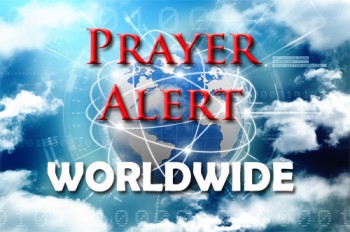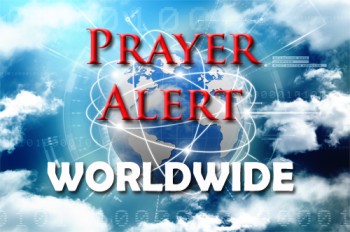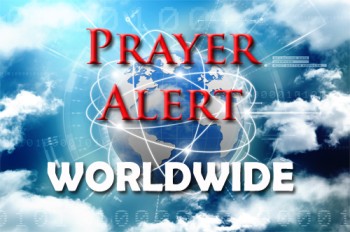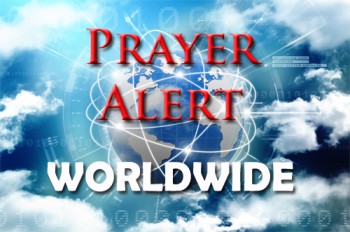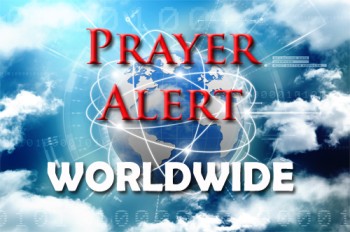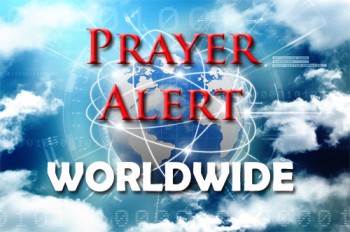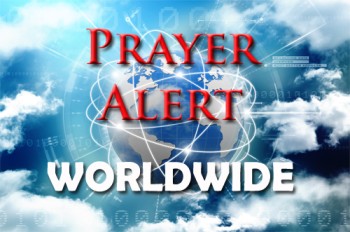Displaying items by tag: Africa
Ghana: ‘crown jewels’ to be loaned by UK
The UK is sending 32 significant artefacts, including a gold peace pipe, to Ghana on long-term loan, 150 years after they were looted from the Asante king's court. 17 pieces are from the Victoria and Albert Museum (V&A), and 15 from the British Museum. The move aims to foster cultural cooperation after years of tension. Some UK museums are legally prohibited from permanently returning contested items, making loans a compromise for repatriation. However, there is a concern that loans imply acceptance of UK ownership. Tristram Hunt, V&A's director, likened the gold court regalia to the UK's Crown Jewels and stressed the importance of fair sharing. The three-year loan agreements, extendable for another three, are with Otumfo Osei Tutu II, the current Asante king, rather than the Ghanaian government. The artefacts will be displayed at his palace in Kumasi, the Asante region's capital, to celebrate his silver jubilee. These gold items are the ultimate symbol of the royal government and are believed to be invested with the spirits of former Asante kings.
Comoros: violence follows disputed election result
The announcement on 17 January that Azali Assoumani had been re-elected president of the Comoros resulted in numerous protests and clashes. Demonstrators in the capital, Moroni, vandalised a former minister's house and blocked roads during the day, leading to confrontations with police who used tear gas and made arrests. In the evening, the government imposed a night curfew, citing ‘public necessity’. Officials announced that Assoumani had won 62.97% of the vote, but opposition leaders alleged fraud, including ballot-stuffing and inconsistent results, and jointly demanded the annulment of the result. The UN called for restraint amid mounting post-election tensions and urged the authorities to ensure a safe environment for peaceful assembly and expression of views. The Comoros, a politically volatile three-island chain with a history of coups, experienced a surprisingly low voter turnout of 16%, and discrepancies in vote counts raised concerns about the election's regularity.
Nigeria: charismatic church leader accused of multiple cases of abuse
The BBC has exposed evidence of widespread abuse and torture by TB Joshua, the founder of one of the world's largest Christian evangelical churches, the Synagogue Church of All Nations. The two-year investigation revealed multiple eyewitness accounts of physical violence, torture, child abuse, and individuals being whipped and chained by him. Many women reported sexual assault, with some claiming repeated rape over the years within the compound. Forced abortions allegedly followed the rapes, with one woman claiming five terminations. Additionally, there were accounts of Joshua staging fake ‘miracle healings’ in broadcasts to millions worldwide. One British victim, Rae, shared her harrowing experience of being sexually assaulted, enduring solitary confinement for two years, and attempting suicide multiple times. The church did not respond to these allegations but has previously denied similar claims. Joshua died in 2021: his church, now led by his wife, still attracts pilgrims from around the world.
Nigeria: ‘persistent, pervasive, proliferating, and growing’ persecution ignored by world
A never-ending massacre of Christians being ‘killed for sport’ is reportedly happening in Nigeria, yet the world appears to be largely deaf to it. While much of the world was celebrating a beginning - Christmas, the birth of Jesus Christ - in Nigeria they were mourning the end of many lives. Armed bandits ran amok, according to Amnesty International, in some twenty communities across central Nigeria, killing at least 140. In a country where accurate statistics are traditionally hard to come by, some sources have put the death toll closer to 200. The Christians were killed in a wide swath across an invisible line that separates the mostly Muslim north and the predominantly Christian south in the country’s Plateau State. One commentator on social media asked: ‘When is the protest march scheduled for?’
Ethiopia / Somaliland: port agreement angers Somalia
An agreement on 1 January by breakaway Somaliland to allow Ethiopia to use the Red Sea port of Berbera has been condemned by Somalia as dangerous for regional stability. Since 1991, when Eritrea gained independence, Ethiopia has been landlocked and reliant on neighbouring Djibouti for maritime trade access. The new agreement, signed by the Ethiopian prime minister and Somaliland’s president, includes acknowledging Somaliland as an independent nation and giving it a share of the ownership of Ethiopian Airlines in due course. Somaliland, which declared autonomy in 1991, lacks widespread international recognition; Somalia insists that it remains part of its territory. Following mediation by Djibouti, the two countries have agreed to restart talks to resolve their dispute.
DRC: crucial elections complicated by technical problems
On 20 December, amid widespread delays and logistical complications, polling stations opened in the Democratic Republic of Congo (DRC). Because of the delays, it was decided to extend the voting for a second day. The election is a significant moment for the nation. Over 40 million are expected to vote, including Congolese nationals living in some other countries: they will elect not only the president, but also 484 national assembly members, 715 members of provincial assemblies, and 311 municipal council members - a total of more than 1,500, from a pool of over 100,000 candidates. Several opposition candidates have expressed serious concerns about the chaotic process and possible fraud. Félix Tshisekedi, the incumbent president, is seen as likely to be re-elected, given that the opposition has remained fractured. If re-elected, he has threatened to declare war on Rwanda: see The DRC has grappled with years of conflict and political instability, making this election a crucial step towards achieving stability and democracy.
South Africa: plans for new nuclear power stations
The government has announced that South Africa, battling crippling power blackouts, plans to add 2,500 megawatts of new nuclear generation. The country has Africa's only nuclear power station, but the Koeberg plant near Cape Town is currently only working at half capacity. The first of the new units will probably come on stream in 2032 or 2033. Electricity minister Kgosientsho Ramokgopa said the extra nuclear power would be a significant milestone. He added that it would be part of the government action to ‘ending the existential challenge that is confronting the country’ over power shortages and long-term energy security. Rotating power cuts of up to twelve hours a day over the past fifteen years have badly hit the economy and the government's reputation as it heads into an election next year. National power company Eskom has been tainted by corruption and maintenance problems which have led to the power cuts. In a bid to extend the life of the Koeberg plant by twenty years, one unit was closed for nearly a year and the second unit was shut down for maintenance this week.
Madagascar: re-elected president has to ensure electoral reforms
The USA, Japan, and the European Union have expressed their willingness to collaborate with Madagascar's re-elected president Andry Rajoelina, provided he ensures electoral reforms in the country. The country has a history of election crises; the most notable one, in 2009, ended in a coup that installed Rajoelina as president and led to violence between demonstrators and security forces. He has now been re-elected for a third term, with 59% of the vote, but there were numerous claims of irregularities and vote rigging, and ten of the candidates boycotted the election, leading to a low voter turnout. Rajoelina is being urged to implement electoral reforms that will foster transparency, fairness, and inclusivity in the electoral process - reforms which are crucial for restoring international confidence. Madagascar has one of the highest poverty rates in the world, reaching 75% in 2022. Before the elections, there were fears that social difficulties and the economy, battered by climate change and politics, would get worse if the outcome didn't reflect the will of the people.
Sierra Leone: weekend coup attempt foiled
The information minister has declared that attacks on several locations in the capital, Freetown, were in fact a failed coup attempt led mainly by bodyguards of the previous president, Ernest Koroma. On 26 November they attacked a military barracks and a prison, freeing over 200 prisoners, but by the next day calm had been restored by the security forces, with most of the attackers killed or captured. President Bio remains unharmed. Sierra Leone, which is still recovering from a 1991-2002 civil war in which more than 50,000 were killed, has been tense since Bio was re-elected in June. The result was rejected by the main opposition candidate and questioned by international partners including the USA and the EU.
DRC: UN peacekeepers agree to withdraw
After nearly two decades, the United Nations Stabilisation Mission in Congo (MONUSCO) has signed an agreement to withdraw its 15,000 peacekeepers from the Democratic Republic of Congo. The foreign minister and MONUSCO's head finalised the deal, marking the end of a collaboration that struggled to bring lasting peace to eastern Congo, a region plagued by a long-standing conflict involving numerous armed groups, some backed by neighbouring countries. With upcoming elections in December, the conflict has taken centre stage, prompting the incumbent president Félix Tshisekedi, to call for the UN peacekeepers' accelerated withdrawal; the government has cited ‘unsatisfactory results’ to justify this request. Tensions between the UN mission and the local population have often flared, resulting in deadly protests. The exact timing of the withdrawal has not yet been agreed.
